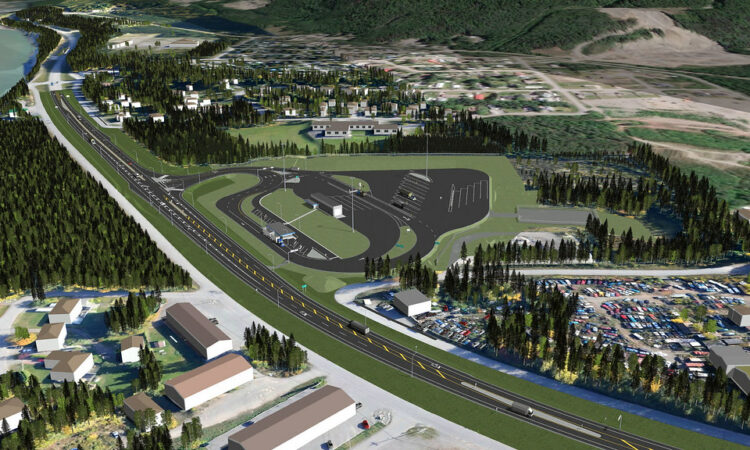Construction will begin this spring on a new commercial vehicle inspection station east of Terrace, which will improve safety for drivers along the highway corridor.
A construction contract was awarded to IDL Projects Inc. to build the inspection station, which will replace the former station that was decommissioned when a roundabout was built at the intersection of highways 16 and 37.
The new inspection station will incorporate intelligent transportation system (ITS) technology, including weigh-in-motion, making it more efficient than the former station.
Weigh-in-motion reduces reporting requirements while enhancing compliance on the Highway 16 corridor. This technology checks the height, weight and safety credentials of vehicles registered with the Province through Weigh2GoBC that are travelling at highway speeds, without vehicles having to leave the highway. This project includes one weigh-in-motion site on Highway 16.
Other ITS technologies will include automatic vehicle-identification to verify a vehicle’s credentials and allow it to bypass the inspection station if certain requirements are met, as well as over-height detectors and a tire anomaly and classification system, which improves safety by detecting missing or underinflated tires.
Long-haul commercial drivers will also benefit from additional parking spaces and rest areas. Flush toilets with running water will be open during office hours, supplemented by pit toilets that are always accessible. Both local and commercial drivers will see improved mobility across the highway corridor and a decrease in traffic disruptions and delays with the new station located further away from the Highway 16 and 37 roundabout.
The facility will include parking for the public, staff and oversized vehicles and will support multiple services, including:
- short-term truck parking (five stalls);
- overnight truck parking (10 stalls);
- refrigeration unit plug-ins;
- Wi-Fi; and
- oversized vehicle staging for inter-regional transport trips.
The $34.2-million project is jointly funded by Transport Canada and the Province, with Transport Canada providing $15 million and the Ministry of Transportation and Infrastructure providing $19.2 million.
The project is slated for completion in late 2024.


